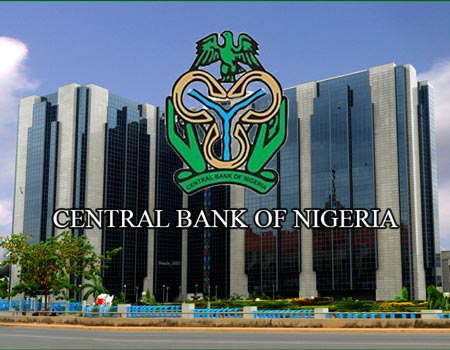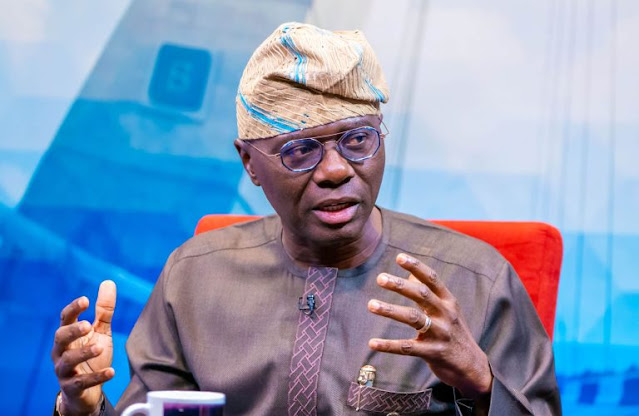In a significant boost to Nigeria’s economic outlook, the nation’s foreign exchange reserves have recorded an impressive increase of $4.1 billion in the first eight months of 2025, rising from $36.86 billion on January 2 to $40.98 billion by September 4. This remarkable growth, as reported by the Central Bank of Nigeria (CBN), reflects a combination of enhanced crude oil production, favorable global oil prices, and a surge in foreign exchange (FX) inflows, including remittances and foreign investments. The development signals a positive trajectory for Nigeria’s economy, which has faced persistent challenges related to foreign exchange liquidity and currency stability in recent years.
A Breakdown of the Reserves Surge
The $4.1 billion increase in Nigeria’s foreign reserves represents a significant milestone for the country, which has historically relied heavily on oil exports as a primary source of foreign exchange earnings. According to data from the CBN, the reserves grew steadily throughout the year, with notable increments driven by a combination of factors. By September 4, 2025, the reserves stood at $40.98 billion, marking a 10% growth from the $36.86 billion recorded at the beginning of the year. This growth has bolstered Nigeria’s ability to meet external obligations, stabilize the naira, and cushion the economy against external shocks.
The CBN’s data highlights that the increase in reserves was primarily fueled by a rise in crude oil production and sustained high oil prices in the global market. Nigeria, Africa’s largest oil producer, has seen a steady recovery in its oil output in 2025, following years of challenges posed by pipeline vandalism, oil theft, and operational inefficiencies in the oil sector. The Nigerian National Petroleum Company Limited (NNPCL) reported that crude oil production averaged 1.6 million barrels per day (bpd) in the first half of 2025, a significant improvement from the 1.2 million bpd recorded in 2024. This uptick in production, coupled with global oil prices averaging above $80 per barrel, has significantly boosted Nigeria’s export earnings, thereby contributing to the accumulation of foreign reserves.
In addition to oil revenues, the CBN noted that foreign exchange inflows from non-oil sources played a critical role in the reserves’ growth. Remittances from Nigerians in the diaspora, which have historically been a major source of FX inflows, surged in 2025, driven by improved economic conditions in key host countries and enhanced CBN policies to incentivize remittance flows through official channels. Furthermore, foreign portfolio investments and loans from multilateral institutions, such as the International Monetary Fund (IMF) and the African Development Bank (AfDB), have contributed to the reserves’ accretion.
The Role of Oil Production in Nigeria’s Economic Recovery
Nigeria’s oil sector remains the backbone of its economy, accounting for over 80% of export earnings and a significant portion of government revenue. The increase in oil production in 2025 has been a game-changer, reversing the downward trend observed in previous years. The government’s efforts to address security challenges in the Niger Delta, including intensified crackdowns on oil theft and vandalism, have yielded positive results. For instance, the deployment of advanced surveillance technologies and collaboration with private security firms have helped secure critical oil infrastructure, enabling higher production levels.
The NNPCL’s strategic investments in upstream oil activities, including partnerships with international oil companies (IOCs), have also contributed to the production boost. Notable projects, such as the reactivation of dormant oil fields and the development of new offshore fields, have enhanced Nigeria’s capacity to meet its OPEC production quota. In July 2025, Nigeria’s oil production reached a peak of 1.67 million bpd, the highest in over two years, according to OPEC data. This increase in output has not only bolstered foreign exchange earnings but also restored investor confidence in Nigeria’s oil sector.
Global oil market dynamics have also played a pivotal role. Despite concerns about a potential slowdown in global demand, oil prices have remained relatively stable in 2025, driven by geopolitical tensions in the Middle East and supply constraints from major producers. Brent crude, the global benchmark, averaged $82 per barrel in the first eight months of 2025, providing a favorable environment for Nigeria to maximize its export revenues. The combination of higher production and elevated prices has translated into a significant inflow of dollars into the CBN’s reserves, strengthening Nigeria’s external position.
Foreign Exchange Inflows: Beyond Oil Revenues
While oil remains the cornerstone of Nigeria’s foreign exchange earnings, the diversification of FX inflows has been a critical factor in the reserves’ growth. The CBN’s proactive measures to attract remittances have yielded impressive results. In 2024, Nigeria received approximately $20 billion in diaspora remittances, and early estimates for 2025 suggest that this figure could surpass $22 billion. The CBN’s “Naira 4 Dollar” scheme, which offers incentives for remittance recipients, has encouraged more Nigerians abroad to channel their funds through formal banking systems, thereby increasing the availability of foreign exchange in the official market.
Foreign portfolio investments (FPIs) have also seen a resurgence in 2025, driven by improved investor confidence in Nigeria’s economic reforms. The CBN’s decision to float the naira in 2023, coupled with efforts to unify the multiple exchange rate regimes, has created a more transparent and predictable FX market. This has attracted foreign investors to Nigeria’s financial markets, particularly in government securities and equities. According to the Nigerian Exchange Group (NGX), foreign portfolio inflows into the stock market increased by 15% in the first half of 2025 compared to the same period in 2024.
Multilateral loans have further bolstered Nigeria’s reserves. In 2025, Nigeria secured a $2.5 billion loan from the IMF to support economic stabilization programs, with a portion of the funds allocated to reserve augmentation. Similarly, the AfDB approved a $1 billion facility to support infrastructure development, which has indirectly contributed to FX inflows by financing critical projects that attract foreign direct investment (FDI). These inflows have provided the CBN with additional liquidity to intervene in the FX market, stabilize the naira, and meet import demands.
Implications for the Naira and Economic Stability
The surge in foreign reserves has significant implications for Nigeria’s economy, particularly for the stability of the naira. The naira has faced persistent pressure in recent years due to FX scarcity, leading to significant depreciation in both the official and parallel markets. However, the increase in reserves has enabled the CBN to intervene more effectively in the FX market, supplying dollars to meet demand and curb speculative activities. As a result, the naira has shown signs of stabilization, with the official exchange rate hovering around N1,600 to $1 in September 2025, compared to N1,700 to $1 earlier in the year.
The bolstered reserves also enhance Nigeria’s ability to meet its external obligations, including debt service payments and import financing. With external debt standing at approximately $45 billion as of mid-2025, the increased reserves provide a buffer to service these obligations without depleting FX liquidity. This is particularly important as Nigeria seeks to maintain its creditworthiness in international markets and avoid default risks.
Moreover, the growth in reserves has boosted investor confidence, signaling that Nigeria is on a path to economic recovery. The improved FX liquidity has encouraged foreign investors to return to the market, further supporting the naira and fostering economic growth. The CBN’s ability to maintain a healthy reserve level also provides a cushion against external shocks, such as fluctuations in global oil prices or sudden capital outflows.
Challenges and Risks to Sustained Growth
Despite the positive developments, Nigeria faces several challenges that could undermine the sustainability of its reserves’ growth. One major risk is the volatility of global oil prices. While prices have been favorable in 2025, any significant decline could reduce Nigeria’s export earnings and slow the pace of reserve accumulation. Geopolitical developments, such as resolutions to conflicts in oil-producing regions or shifts in global energy policies, could further impact oil prices and Nigeria’s revenues.
Domestically, the persistence of oil theft and pipeline vandalism remains a concern, despite recent improvements. The government must sustain its efforts to secure oil infrastructure and address illegal activities in the Niger Delta to maintain production levels. Additionally, the over-reliance on oil revenues underscores the need for economic diversification. While non-oil FX inflows have increased, they remain insufficient to offset potential declines in oil earnings.
Another challenge is the management of the naira. While the CBN’s interventions have stabilized the currency, maintaining a balance between defending the naira and allowing market-driven adjustments is critical. Excessive interventions could deplete reserves, while a fully liberalized exchange rate could lead to further depreciation, impacting inflation and purchasing power.
Government and CBN’s Policy Response
The Nigerian government and the CBN have outlined several policy measures to sustain the growth in foreign reserves and ensure long-term economic stability. The CBN has emphasized its commitment to maintaining a market-determined exchange rate while intervening to prevent excessive volatility. The bank has also pledged to continue improving the efficiency of the FX market, including enhancing transparency and reducing bureaucratic bottlenecks.
The government, on its part, is focusing on diversifying the economy to reduce dependence on oil. Initiatives such as the National Agricultural Technology and Innovation Policy (NATIP) aim to boost agricultural exports, while investments in the manufacturing and technology sectors are designed to attract FDI and create non-oil revenue streams. The completion of key infrastructure projects, such as the Dangote Refinery and the Ajaokuta Steel Company, is expected to reduce Nigeria’s import bill and enhance export capacity, further supporting reserve growth.
Expert Perspectives on the Reserves Surge
Economic analysts have lauded the increase in Nigeria’s foreign reserves, noting its potential to drive economic recovery. Dr. Chukwuma Okonkwo, an economist at the Lagos Business School, described the development as a “significant step toward restoring macroeconomic stability.” He emphasized that the sustained growth in reserves could help Nigeria regain its position as a leading investment destination in Africa. However, he cautioned that structural reforms, such as improving the ease of doing business and addressing power sector challenges, are critical to sustaining the momentum.
Similarly, Mrs. Aisha Ibrahim, a financial analyst based in Abuja, highlighted the importance of remittances and non-oil exports in diversifying Nigeria’s FX inflows. She urged the government to deepen financial inclusion and leverage technology to capture more remittance flows through formal channels. “The diaspora is a goldmine for Nigeria, and with the right policies, we can double remittance inflows in the next five years,” she said.
Looking Ahead: A Path to Sustained Economic Growth
The $4.1 billion surge in Nigeria’s foreign reserves marks a turning point for the country’s economy, which has grappled with FX shortages and currency volatility for years. The combination of increased oil production, favorable global oil prices, and robust non-oil FX inflows has created a favorable environment for reserve accumulation. However, sustaining this growth requires addressing structural challenges, diversifying the economy, and maintaining prudent fiscal and monetary policies.
As Nigeria navigates the complexities of the global economy, the government and the CBN must remain vigilant in managing risks and seizing opportunities. By leveraging the current momentum, Nigeria can strengthen its external position, stabilize the naira, and lay the foundation for inclusive and sustainable economic growth. The journey to economic resilience is far from over, but the recent reserves surge is a promising sign that Nigeria is on the right track.






